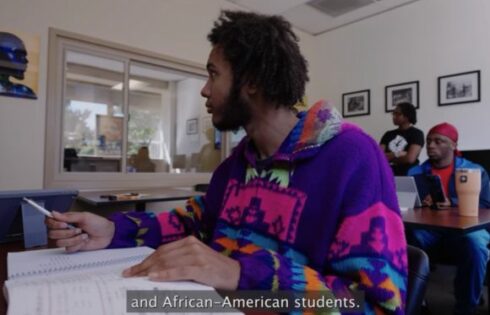
Here’s irony: In trying to fend off a lawsuit from a male student accused of sexual assault, who said the school violated his own Title IX rights by prejudging him, the University of Massachusetts-Amherst is telling the Department of Education that it doesn’t have the authority to enforce its sexual-assault rules.
First, a little background: In 2011, the department’s Office for Civil Rights (OCR) sent out a guidance letter known as a “Dear Colleague” that putatively required schools to lower their evidence standard in sexual-assault cases to “preponderance,” also known as “more likely than not,” among other victim-favoring changes.
The Foundation for Individual Rights in Education notes that UMass’s motion to dismiss the student’s lawsuit has this section:
Mr. Doe’s claims appear premised on alleged violations of the Dear Colleague Letter, not on OCR regulation violations. The Dear Colleague Letter, which was not subject to the notice and comment procedures of the Administrative Procedures Act, provides guidance to federal funding recipients about DOE’s policies in reviewing Title IX compliance, but did not create “legislative rules” and cannot “create new law, rights or duties,” let alone free-standing causes of action.
As FIRE notes, OCR is bound by the Administrative Procedure Act and its notice-and-comment rules:
OCR skipped this process altogether when it issued the [Dear Colleague], despite several new substantive requirements in the document, like the requirement that institutions use the preponderance of the evidence standard when adjudicating claims of sexual misconduct. When an agency imposes new obligations upon the public without subjecting it to public notice and comment, the new rules aren’t legally binding or lawfully enforceable.
If the judge sides with UMass over this interpretation of the Dear Colleague, it could embolden other schools to stand up to OCR and retain or reinstate higher evidence thresholds for sexual-assault cases, such as the once-common “clear and persuasive” standard that longtime holdout Princeton dropped this summer under OCR threats.
Like The College Fix on Facebook / Follow us on Twitter
IMAGE: Donkey Hotey/Flickr
Like The College Fix on Facebook / Follow us on Twitter





Please join the conversation about our stories on Facebook, Twitter, Instagram, Reddit, MeWe, Rumble, Gab, Minds and Gettr.